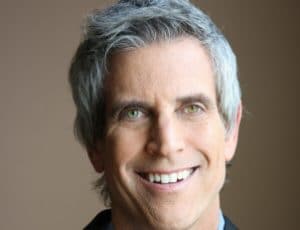
Learn the secrets of organizational effectivity


Organizational psychologist, successful M&A expert and adviser and internationally recognized keynote speaker
Request fees and availabilitySend a simple request. You’ll get a quick reply with fees and availability
About Mitchell
Keynote
Video
Articles
Keynote speaker Mitchell Lee Marks works with firms internationally, advising executives on issues of organizational change, organizational effectiveness, corporate culture, and the planning and implementation of mergers, acquisitions, reorganizations, and other transitions. Mitchell’s clients range from small startups to large multinational corporations, as well as not-for-profit and government organizations. Mitch has advised in over 100 cases of mergers, acquisitions, restructurings, and other major transitions.
Current or past clients include Pfizer, AOL, Intel, Lafarge/Holcim, Motorola, AT&T, Lockheed Martin Corporation, Unisys, Hewlett Packard, Lucent Technologies, Abbott Laboratories, BNP Paribas, Johnson & Johnson, Scios, KPMG, Imperial Oil of Canada, BP Amoco, Molson Breweries, Bank of America, Citibank, American Airlines, Delta Airlines, MCA, Kaiser Permanente Medical Care Program, Blue Shield of California, Los Angeles County, the March of Dimes, and others in the financial, manufacturing, healthcare, entertainment, high technology, government, publishing, consumer products, and communications industries.
Our speaker Mitchell Lee Marks is the author of seven books, including Joining Forces: Making One Plus One Equal Three in Mergers, Acquisitions, and Alliances which is highly regarded as the “bible” of integration management and now in its second edition. He has published scores of articles in practitioner and scholarly journals, including Harvard Business Review, MIT Sloan Management Review, Academy of Management Executive, Journal of Applied Psychology, Human Resource Management, and Human Organization.
Mitchell Lee Marks received his Ph.D. in Organizational Psychology from the University of Michigan in 1981, where he conducted the first studies on human and cultural aspects of mergers, acquisitions, and other major organizational transitions. His research on organizational change and transition, as well as on employee motivation and productivity, has been recognized in academia, including the Outstanding Contribution to Organizational Behavior award from the Academy of Management.
See keynotes with Mitchell Lee MarksThe impact of the global COVID pandemic is still reverberating in organizations and their
people. Leaders cannot control the pandemic, but they can control the extent to which their
people, processes and systems deal with it. Leaders can use the pandemic as an opportunity in
many ways, ranging from immediate workplace enhancements to longer-term organization
development:
This presentation highlights case examples of workplace leaders being proactive in not just
contending with pandemic fallout but using it to enhance employee productivity, teamwork
and overall organizational effectiveness. And, it provides practical tools to aid in creating the
New Normal.
Change and transition have always enveloped workplaces and their people. This presentation
examines how some people not only survive during disruptive times but actually thrive in ways
like improving their personal performance, team work and overall organizational effectiveness.
It provides insight into the stages people go through in dealing with change and transition and
practical tools for both minimizing the downside consequences and maximizing the upside
opportunities. These opportunities include both short-term benefits like maintaining
productivity and focus and long-term benefits like enhancing career development and
contributing to a desired organizational culture. This session presents both the “science” of
workplace change and the practical “application” of tools and techniques for managing change
and transition in the workplace. It features colorful stories of how individuals have used these
tools during change and transition to enhance both their personal situations and their overall
organizational dynamics.
Watch speaker Mitchell Lee Marks in action:
Why do clients typically hire you to speak?
Clients typically hire me because of my vast practical experience, my ability to translate concepts into action, and my colorful “war stories” which illustrate the dynamics and practices I discuss. I have been involved in over 100 cases of mergers and acquisitions. So, I have many engaging vignettes that describe what to do—or what not to do—to make a merger or acquisition work.
Audiences love to hear the stories that accentuate the practical advice. My career has been evenly split between academic and business jobs. So, clients appreciate that I present “best practices” within the context of how to realistic apply them. And, clients also appreciate my sense of humor and the manner in which I interject humor into some serious discussion topics.
What is your most inspirational life experience?
My most inspirational life experience is when I see a person who seems to be struck by misfortune smile. For people in difficult situations to smile and maintain a positive outlook on life makes me put my life and my “issues” in perspective. They inspire me to appreciate what really matters in life!
Could you elaborate on why some mergers and acquisitions fail and what makes others succeed?
There are many reasons why mergers and acquisitions fail—sometimes you buy the wrong company, sometimes you pay the wrong price and sometimes you do the deal at the wrong time. But, our research shows that the primary reason for M&A success or failure is the process through which the organizations are integrated. My talks on M&A highlight the specific leadership and management actions that distinguish successful from failed mergers and acquisitions.
Why is culture so important for corporations?
Culture clash in a merger or acquisition is a lot like breathing. You don’t think about breathing, you just do it. You may be aware of your breathing now, because it’s been raised to your attention. If someone came up from behind, cupped their hands firmly around your mouth and nostrils, and threatened your ability to breathe, then you would certainly pay attention to breathing. The same holds true for corporate culture in a merger or acquisition.
People don’t regularly notice their corporate culture, but when thrust into a merger, employees become aware of how their ways of doing things differ from those of the other side. When they feel threatened by a combination—often because they see themselves on the weaker side—employees not only see differences but also feel a sense of vulnerability and fear over losing their accustomed way of doing business. Rather than look forward to the potential of a new culture, they tend to look back and hold on tightly to their old ways of doing things rather than embrace the new.
Just as an organization cannot effectively run with multiple incompatible information systems, it cannot succeed with multiple incompatible cultures. The key is to get people in the lead company to act not like missionaries landing in the new world with the intent to convert the heathens to religion, but like diplomats who are charged with bringing disparate factions together.
With 20/20 hindsight, CEOs and other senior executives say that the one thing they would do differently in managing a merger or acquisition is to pay more attention to culture—both breaking down the old and building the new.
How much does humor factor into your keynotes and other speaking engagements?
Humor plays a huge role in my speaking engagements, as it does in my daily interactions with colleagues and clients. Business topics sometimes can be dry or, at best, matter-of-fact. I have a well developed sense-of-humor that finds its way into my keynotes and other speaking engagements.
Send a simple request. You’ll get a quick reply with fees and availability